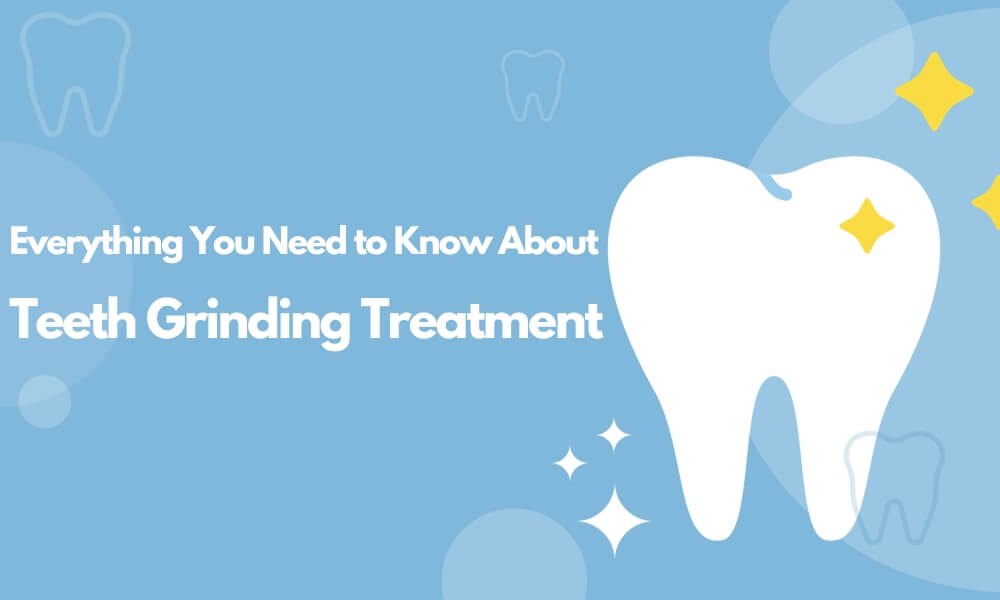Everything You Need to Know About Teeth Grinding Treatment
Teeth grinding and clenching are a common reaction to stress and anger and aren’t a problem when occasionally done. But if you’re doing it often involuntarily or while sleeping, it could lead to severe dental health problems. Unfortunately, bruxism has become common due to severe work-related stress and anxiety. In the long run, it could wear out your teeth and may have to be extracted. Learn about teeth grinding treatment if you believe you could be grinding, gnashing, or clenching your teeth during sleep.
What Is Bruxism?
Teeth grinding or bruxism is when patients unconsciously grind, gnash, or clench their teeth while awake or sleeping. When you grind your teeth in the daytime while awake, it’s called diurnal bruxism; during sleep, it’s called sleep bruxism. The latter is a sleep-related disorder often combined with other sleep disorders like sleep apnea. As earlier said, occasional bruxism isn’t a problem, but when it occurs frequently and is severe, it could lead to jaw disorders like TMJs, enamel erosion, and headaches. Sleep bruxism can be difficult to diagnose until other complications develop, hence it is important to pay attention to teeth-grinding symptoms.
Diurnal Teeth Grinding Symptoms
People grind and clench their teeth while they’re awake. This is caused by stress and other emotional triggers like anxiety, anger, etc. Some people grind their teeth while concentrating. If you aren’t aware, look for signs like flattened or fractured teeth, worn tooth enamel, jaw pain, difficulty opening or closing the jaw completely, dull headache, chewing on the inside of the teeth, or pain that seems like an earache.
Sleep Teeth Grinding Symptoms
Sleep bruxism is more harmful because you’re unlikely to be aware that it’s happening. Also, because it’s happening during sleep, people don’t realise how strong they’re clenching. If the grinding is so loud that you wake your partner up, you must consult a dentist. Other symptoms include disrupted sleep, headache or facial pain when you wake up in the morning, loose teeth, pain while eating, teeth fracture, and teeth sensitivity.
Bruxism Treatment
Bruxism isn’t diagnosed until you visit the dentist for other complaints. The doctor will look for some of the signs mentioned above and even look for changes in your teeth over consecutive visits to ensure the problem is progressive and evaluate further treatment. Bruxism ideally affects children who outgrow the problem eventually. But if the problem is severe, teeth-grinding treatment options include medications, splints, and even therapy. Mouthguards are made using hard acrylic or soft materials and are designed to keep the teeth separated to prevent further damage. If bruxism has led to other complications, the dentist will treat those issues, i.e., reshape the chewing surface or use a crown over the affected teeth.
Long-term bruxism treatment includes stress management and cognitive behavioural therapy to reduce anxiety and stress. The dentist may encourage you to consider meditation, exercise, and physical therapy. While medications aren’t effective, they’re suggested to complement other treatment options. Medications include muscle relaxants, Botox injections, and antidepressants. Sometimes, treating other underlying conditions like GERD can automatically treat bruxism. The doctor may also advise you to reduce alcohol, cigarette smoking, and caffeine and avoid chewing objects like pens, pencils, etc.
Visit us if you are looking for a reputable teeth-grinding treatment hospital in India. Dr. Sunil Richardsons is an experienced oral and maxillofacial surgeon offering excellent treatment at the best prices.

